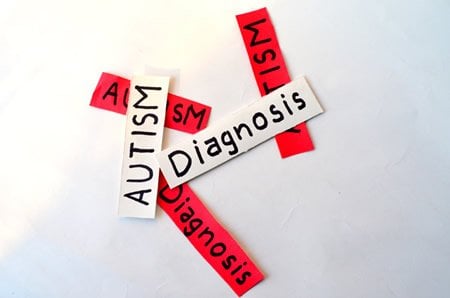A five week treatment with the synthetic hormone oxytocin significantly improved social, emotional and behavioral issues among young children with autism, according to University of Sydney research published today in Molecular Psychiatry.
The study, led by researchers at the University’s Brain and Mind Centre, is thought to be the first evidence of a medical treatment for social impairments in children with autism. It is also the first clinical trial investigating the efficacy, tolerability and safety of intranasal-administered oxytocin in young children with autism.
Autism is a group of complex brain developmental disorders characterized by impairments in social interaction, communication, and stereotypical and repetitive behaviours. The diagnosed incidence is estimated to be one in 68 children and effective interventions remain limited.
Behavioural therapies can improve social, emotional and behavioural impairments but these are typically time consuming (40 hours per week), remain costly and show mixed outcomes. There is currently no medical treatment for these problems.

In this new study, 31 children aged three to eight years of age received a twice daily course of oxytocin in the form of a nasal spray.
“We used some of the most widely used assessments of social responsiveness for children with autism,” said autism expert, Associate Professor Adam Guastella of the Brain and Mind Centre.
“We found that following oxytocin treatment, parents reported their child to be more socially responsive at home, and our own blind independent clinician ratings also supported improved social responsiveness in the therapy rooms of the Brain and Mind Centre,” he said.
Overall, the nasal spray was well tolerated and the most common adverse events were thirst, urination and constipation.
This is the first time a medical treatment has shown this type of benefit for children with autism and findings reinforce outcomes from a longer sustained program of research by this team.
Over the last 10 years Brain and Mind Centre researchers have been documenting the benefits of oxytocin in humans, revealing that it enhances eye gaze, emotion recognition and memory across a range of populations.
Study co-author and co-director of the Brain and Mind Centre, Professor Ian Hickie noted the new results were a critical first advance in the development of medical treatments for the social deficits that characterize autism.
“The potential to use such simple treatments to enhance the longer-term benefits of other behavioural, educational and technology-based therapies is very exciting,” he said.
Most recently the team has linked observed changes from treatment to brain changes associated with social circuitry. The next step in the research is to understand exactly how oxytocin changes brain circuitry to improve social behavior, and to document how related treatments might be used to boost established social learning interventions.
The researchers are seeking to further develop the potential of oxytocin-based interventions within the context of good multi-disciplinary care for autism.
Funding: National Health and Medical Research Council, BUPA Health Foundation funded this study.
Source: Dan Gaffney – University of Sydney
Image Source: The image is credited to Prerana Jangam and is in the public domain
Original Research: Full open access research for “The effect of oxytocin nasal spray on social interaction deficits observed in young children with autism: a randomized clinical crossover trial” by C J Yatawara, S L Einfeld, I B Hickie, T A Davenport and A J Guastella in Molecular Psychiatry. Published online October 27 2015 doi:10.1038/mp.2015.162
Abstract
The effect of oxytocin nasal spray on social interaction deficits observed in young children with autism: a randomized clinical crossover trial
Interventions for autism are limited. The synthetic hormone oxytocin may provide a potential treatment to improve core social and behavioral difficulties in autism, but its efficacy has yet to be evaluated in young children who potentially may benefit to a greater extent. We investigated the efficacy, tolerability and safety of oxytocin treatment in young children with autism using a double-blind, randomized, placebo-controlled, crossover, clinical trial. Thirty-one children with autism received 12 International Units (IU) of oxytocin and placebo nasal spray morning and night (24 IU per day) for 5 weeks, with a 4-week washout period between each treatment. Compared with placebo, oxytocin led to significant improvements on the primary outcome of caregiver-rated social responsiveness. Overall, nasal spray was well tolerated, and the most common reported adverse events were thirst, urination and constipation. This study is the first clinical trial to support the potential of oxytocin as an early intervention for young children with autism to help improve social interaction deficits.
“The effect of oxytocin nasal spray on social interaction deficits observed in young children with autism: a randomized clinical crossover trial” by C J Yatawara, S L Einfeld, I B Hickie, T A Davenport and A J Guastella in Molecular Psychiatry. Published online October 27 2015 doi:10.1038/mp.2015.162






